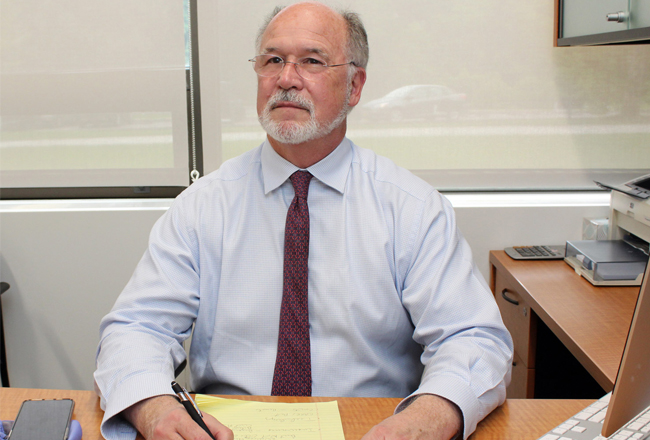What employers need to know about employee recreational use of marijuana
With recreational use of marijuana now legal for adults in New York state, employers can expect at least some of their employees to be cannabis users on a regular and legal basis. New York state by the end of January had issued conditional licenses for 66 cannabis dispensaries to open, on top of the estimated 1,200 or more unlicensed retailers openly selling without a license.
The state”™s Department of Labor (DOL) recently issued a guide for employers covering adult use cannabis and the workplace. It”™s a document with which employers should become familiar, recommends Attorney Jeffrey Buss of the Yonkers-based law firm Smith Buss & Jacobs LLP.

“I think it was a good effort to simplify what an employer can and cannot do,” Buss told the Business Journals. “You cannot discriminate against an employee for doing something outside of work that”™s legal and they clearly state that if someone wants to use marijuana and they”™re not at work that”™s not a problem. But, it”™s out of work. They can”™t use a company vehicle, for example, to do that. And, I think within the workplace it does say that you can take action against an employee under certain defined circumstances.”
Those circumstances include when an employee while working manifests specific symptoms of cannabis impairment that lessens the employee”™s performance or interferes with the employer”™s obligation to provide a safe and healthy workplace, according to the DOL”™s guidance.
“You may have employees who feel they can get high now at work,” Buss said. “That”™s a problem. With alcohol if pulled over you have a breathalyser test, but we don”™t have that level of testing available for cannabis. You have to be able to articulate in an objective fashion that the person is somehow unable to perform their duties because they”™re impaired from marijuana. I think most people can tell when somebody is ”˜stoned,”™ but to actually say, ”˜I disciplined my employee because they were stoned”™ you need to have a little bit more of a write-up that articulates specific factual observations.”
Buss said that the fact that recreational use of marijuana has been legalized is not an earthshaking change on a practical level and compared it with, in certain circumstances, as being no more of a cause for concern than having a drink of alcohol.
“There are certain circumstances where it”™s appropriate to have a drink and certain circumstances where it”™s not and the same common sense standard would apply,” Buss said. “An employer doesn”™t have an affirmative duty to police their employees”™ conduct. They have an obligation to provide a safe place to work and to make sure that their employees are following basic safety rules.”
Buss said the precise rules depend on what job an employee is doing. The DOL, in its cannabis guidance, points out that employers are not prohibited from taking disciplinary action against employees who are using cannabis during work hours or doing so using an employer”™s property.
“Nobody in their right mind would want to have a surgeon who was impaired operating on them,” Buss said. “They could have stricter tests and rules in a hospital setting perhaps than they could if you were working in a law firm. If the person is operating heavy equipment or driving a truck on a highway you should have some regular screening and established policies to make it very clear they cannot work if impaired.”
Buss said that the fact that the federal government does not recognize marijuana as being legal imposes concerns for some employers. He said that employers who have federal contracts may be restricted from having people working who have been using marijuana.
Buss said that an unintended consequence of legalizing the recreational use of marijuana concerns secondhand smoke, especially where that smoke may travel from apartment to apartment in a multifamily building. He posed a hypothetical in which someone who has a job requiring random drug testing might inhale enough secondhand marijuana smoke to produce a positive result in a drug test and then have to convince the employer that he or she did not actually use the drug.
“Most businesses don”™t need an attorney to give them advice on this, but a number will need backup and support either in drafting policies for work or ensuring that they”™re not in violation of some other contractual obligation they have such as a labor agreement or commercial lease agreement,” Buss said. “If you have an employee handbook or manual you really should update it at least once a year. Until there is more clarity in the law it is going to be confusing but once a little more time has passed and we become a bit more socially mature about the use of marijuana some of the confusion will go away.”